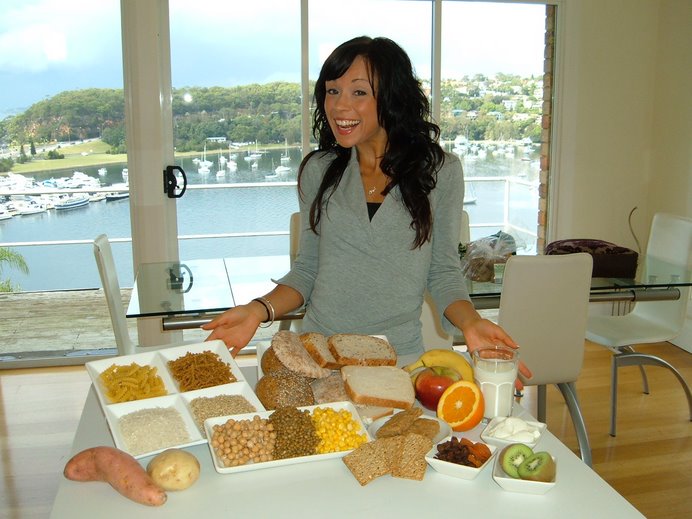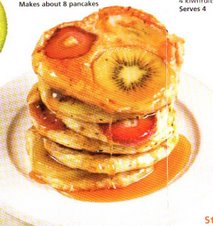Most of us are so busy worrying about what affect food has on our physical body, we never really stop to reflect on just what food may, or may not do, for our BRAIN.
The prevalence in today’s society of mental, behavioural & degenerative conditions seems to be on the rise. It seems every 2nd child has ADHD, ADD, food sensitivities, learning problems, behavioural issues or some myriad of social difficulties. Depression, dementia, Alzheimer’s are also on the rise. Statistics in 2005 were that 12% of the global burden of disease could be attributed to mental health disease. At current rates, it is predicted that depression will become the second highest cause of global disease burden within the next 15 years.
So what does this have to do with food?
There is a significant growing body of evidence that diet plays more than a significant role in many of the above mentioned disorders. Just like the heart, the brain is an organ, & in order to function effectively, it too has certain nutrient requirements.
We all know that we feel better when we eat better. It is a regular comment in my clinic that clients notice an immediate improvement in their moods, clarity of thinking & overall feeling of well being, the minute they change their diet. This is one of the most immediate affects that encourages people to stick with dietary change.
So what does our brain need for good health?
Whilst there are a few nutrients identified as very important for brain development & function, it is important to highlight here that there is no one nutrient or “magic bullet” that holds the key to good mental health & wellbeing. The nutrients listed below can only work properly if a WIDE RANGE of other nutrients are also available in the RIGHT amounts, & in PROPORTION to each other.. Hence, the term BALANCED diet.
So some of the most important nutrients associated with good mental health & wellbeing are:
· Polyunsaturated fatty acids- especially the omega 3 types found in:
- Fish, especially oily fish (salmon, mackerel, sardines, trout, etc
- Seafood (oysters, mussels, prawns, crab, calamari)
- Walnuts & pecans
- Flaxseed oil & soy & linseed bread
- Omega 3 eggs
- Kidney beans,
- Dark green leafy vegetables
Non omega 3 sources of polyunsaturated fats include :
- Sesame & sunflower seeds & oils,
- Peanuts & peanut butter (not too much of this)
- Soybeans & soybean oil
- Wholegrain breads & cereals
Minerals- Some of the most important are:
- Zinc- in whole grains, legumes, meat & milk
- Magnesium- in green leafy vegetables, nuts & wholegrains
- Iron- in red meat, green leafy vegetables, eggs & some fruit
Vitamins- Especially:
- Folate- green leafy vegetables & fortified cereals
- A range of B vitamins- wholegrain products, yeast & dairy products
- Anti-oxidant vitamins such as C & E- in a wide range of fruit & vegetables; COLOUR is the key here- aim to eat a RAINBOW of fruit & vegetables. Don’t always eat the same ones over & over, experiment & try new tastes.
People eating a diet that lacks in one or more of the above combination of polyunsaturated fats, minerals & vitamins, &/or containing too much saturated fat, sugar, additives & preservatives are at a much higher risk of conditions such as:
§ Attention-deficit/hyperactivity disorder (ADHD)
§ A range of depressive conditions
§ Schizophrenia
§ Dementia, including Alzheimers disease
There is currently no evidence or suggestion that the above conditions can be cured or prevented by diet alone, however, there is accumulating evidence that a combination of certain polyunsaturated fats, minerals & vitamins, through a good quality diet, may help to:
§ Relieve the symptoms of some mental illnesses
§ Improve the effectiveness of medication for some conditions
§ Reduce unpleasant side effects of some medications
§ Improve children’s development, behaviour & mental health issues, such as ADHD
So, a diet that would give us the right balance of polyunsaturated fats, vitamins & minerals is on that includes lots of DIFFERENT vegetables & fruit, a wide variety of wholegrains, nuts, seeds & legumes, & some occasional oily fish, lean meat & dairy products.
Take home tips to feed your brain:
Include at least 2 serves of fruit & 5 serves vegetables daily!
- Mix it up! If you are a peas, corn, carrot family/person, these are great for you but try something new. Cruciferous vegetables such as broccoli and cauliflower are so good for you, as are red and purple capsicum and beetroot, yellow and green squash and zucchini, red cabbage, orange sweet potato, the list goes on!!
- The same applies for fruit. Step outside your comfort zone! You may not like the idea of munching into an apple, but why not chop it up, sprinkle with cinnamon and microwave until stewed & enjoy with porridge or low fat yoghurt and nuts?! Or dice up a range of fruits & make fruit kebabs? Fruit smoothies?
- Your imagination is the only limit with fruit & vegetables!
Eat fish more regularly!
- If you automatically go “Yuk!! I hate fish!” Stop! There is no food that can give you the same benefits, so LEARN to like it. Try salmon/tuna patties, tuna casserole, sardines on toast, BBQ’d fish skewers, char-grilled calamari, a prawn risotto….again SO many ideas!
- If you really, really cannot stand the idea, & cannot bring yourself to eat any type of fish, then consider a daily fish oil supplement.
Include nuts & seeds regularly!
- Get rid of packaged & processed snacks. Make your own nut & seed packs & eat with a piece of fresh fruit between meals. Full of fibre, protein & essential fatty acids- & will leave you satisfied.
- If you are watching your weight be aware of quantities & limit nut intake to ~30g per day & seeds to ~1-2 tblsp.
Eat ONLY wholegrain breads & cereals!
- This does not mean never enjoying a fresh slice of crusty white bread again, but your daily choices should be wholegrain!
- Swap the white bread for a grainy or seedy variety. Most people find they love soy & linseed bread or an alternative heavy grain variety once they’ve tried it!
- Eat traditional (not quick) oats- have them cooked as porridge, or raw, sprinkled over a fruit salad with yoghurt- YUM!
- Toss the sugary cereal & choose a no-added sugar variety. Natural, un-toasted muesli’s are a good option & contain the goodness of natural fruit sugars. Or why not try wheat biscuits? Top them with some muesli or other type of cereal for flavour & variety.
FINAL WORD: if you are thinking I really don’t like the TASTE of many of these foods….some good news for you….
Taste buds turn over regularly, thus tastes are TRANSIENT & reflective of the types of food we are eating at a given time. For example, if you eat foods with a certain level of fat, sugar & salt in them, until your taste buds turn over, food may seem bland, as they are not registering at the level of sweetness, etc you are used to. You should get used to a new taste within a few days, but always persist for 2-3 weeks! :)
NB- more information on this topic can be found at:
www.mentalhealth.org.uk
www.sustainweb.org
Publication: Changing Diets, Changing Minds: how food affects mental well being and behaviour
by Courtney Van de Weyer
Winter 2005
Sustain publication






1 comment:
Hi Bridget
I thought that your information was very very interesting and very very healthy with lots of tips.
Thanks and Im now going to try and eat lots more fruit and healthy varieties.
thank you
from Zoe :-)
Post a Comment